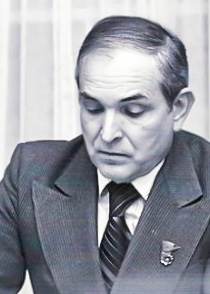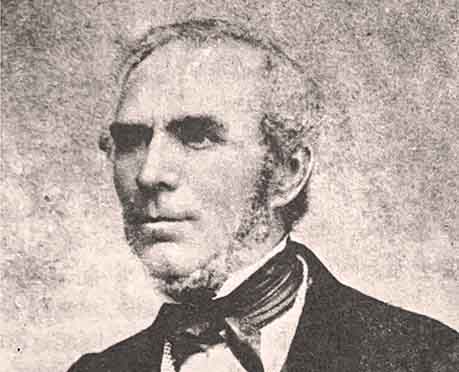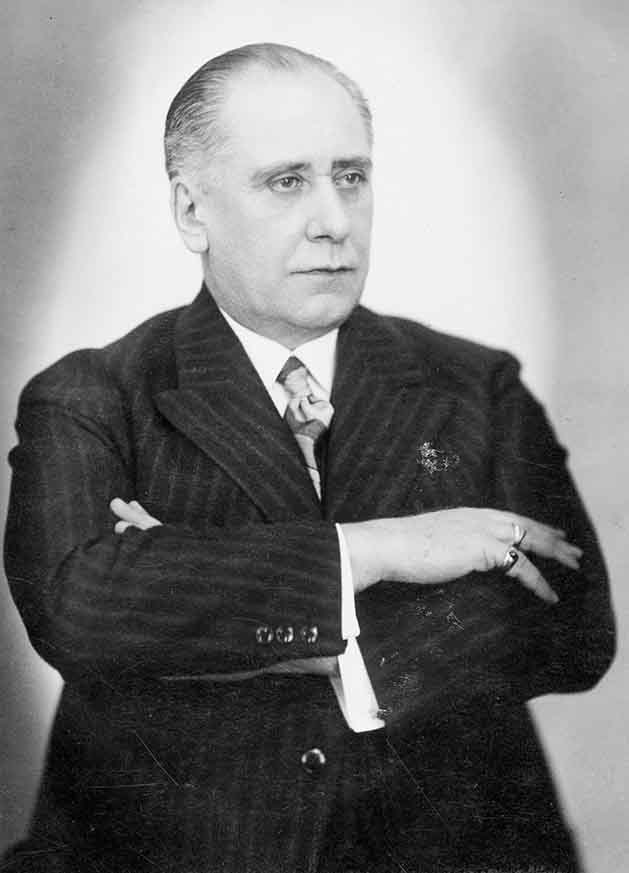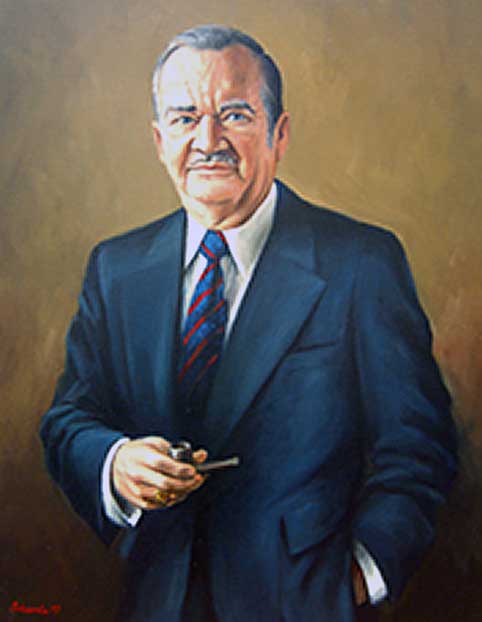It must have been in 1943, when I was 13 years old, that I first came across the name of Oscar Halecki. I found that name in the local Reid Memorial Library only a few blocks away from my home, in the industrial city of Passaic, New Jersey, twelve miles away from the New York City. As the son of Polish highlanders, Jan and Aniela Gromada who had arrived from newly independent Poland to the U.S.A. in 1927, I was raised in a strong Polish patriotic household, so it is not surprising that I became very much interested in the history, culture and folklore of Poland. My interest increased after the September 1, 1939, invasion of Poland that initiated World War II.
My parents — understandably — became distraught and deeply concerned about our large families in war-torn, occupied Poland. As a voracious reader who visited the nearby local library every other day, I looked for books dealing with Poland. This one day I suddenly spotted a new book “The History of Poland” by Oscar Halecki, published by Roy Publishers in 1943. This book made an impression upon me, an eighth-grade student, at St. Joseph’s parochial school in Passaic, N.J., where the Polish Felician Sisters taught in both Polish and English. Somehow, I found out later that Oscar Halecki, was a political refugee, a great Polish historian who found a safe haven in America and was teaching at some college or university.
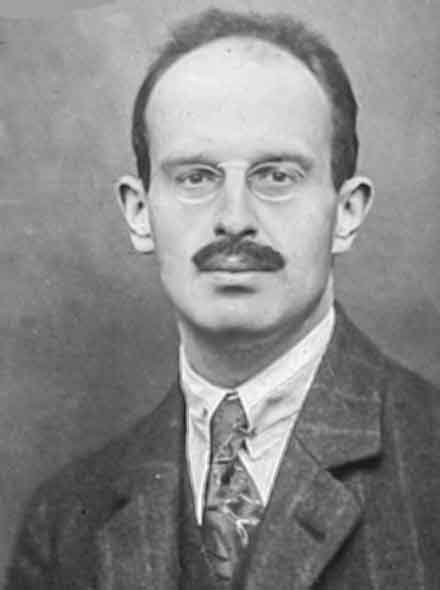
Oscar Halecki (Source: Wikipedia)
The next year, 1944, I remember distinctively hearing Oscar Halecki on the radio, on the air at WMCA station at the New York Town Hall meeting, admirably defending Poland’s rights after the disastrous decisions made at the summit in Teheran. It was a thrill to hear his voice. This was my first encounter with Halecki, the awe-inspiring, articulate, energetic speaker. It was at this time, just before graduating from St. Joseph’s parochial school, that I determined that I wanted to be a historian and that one day I would study under the mentorship of Oskar Halecki at Fordham University. Even at this young age, I was already aware of Poland’s betrayal by the Western Allied powers. So, during the 1944 Presidential elections, I was actively campaigning against President Franklin Roosevelt and instead supporting Governor Thomas E. Dewey of New York.
My dream to study with Oskar Halecki at Fordham University, Graduate School of Arts & Sciences, finally was realized in the fall of 1951, after graduating with a bachelor’s degree from Seton Hall University, in South Orange, N.J. He certainly did not disappoint me. Indeed, he made a profound impression on me with his phenomenal virtuosic, intellectual powers. His brilliant lectures, based on sovereign knowledge of history and delivered without a single note, were both an intellectual and emotional experience. Not only did he impart a tremendous amount of new knowledge based on his current new research, and encouraged us to do research, but he also challenged us to deal with the problem of meaning in history. For me, Halecki was more than a teacher and a great mentor — he became my intellectual father who provided me with an inspiring model.
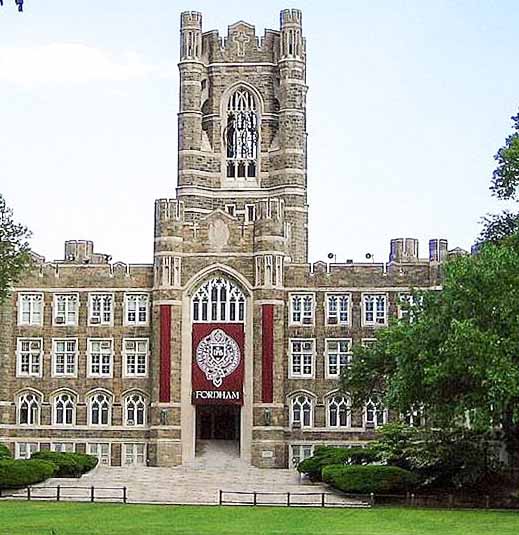
Keating Hall, Fordham University, New York: workplace of Prof. Oskar Halecki in the years 1944-1973 (Source: Wikipedia/halecki.org)
But he was extremely modest and even humble, and always kind to his students; very approachable and willing to listen and answer all questions, even silly ones.
To me, he was very sympathetic and seemed pleased to have a Polish American student who could speak and read Polish and therefore do serious research in Polish history. I am sure that he was also delighted that I took the initiative and organized a Polish Student Club at Fordham University. He went out his way to give me recognition for this achievement.
Halecki, was Executive Director of PIASA (Polish Institute of Arts and Sciences of America) at the time so, when the Polish Institute organized a program at the Woodrow Wilson Foundation on May 2, 1952, commemorating the 161st Anniversary of the Constitution of the Third of May, I was among the speakers representing the Polish Student Club at Fordham University. Other speakers included such luminaries as the famous historian and President of PIASa, Jan Kucharzewski, the great Polish poet, Kazimierz Wierzynski, and – of course – Oscar Halecki. This was my first direct contact with the Polish Institute. It was only later that I became fully conscious of the greatness of the personalities who were part of this program. Halecki knew of my interest in Podhale and góralszczyzna, so he encouraged me to write my master’s thesis on “The Spisz-Orawa Dispute at the Paris Peace Conference." In 1953, I received a master’s degree from Fordham University with great satisfaction.
I could not immediately begin my doctoral studies with Halecki at Fordham since I was drafted into the US Army during the Korean War in August 1953 and returned to civilian life two years later in 1955. But during this two-year period I kept in touch with Halecki by mail, and he was always kind enough to respond to my letters. I finally began the doctoral studies in 1957, not on a full-time basis, because I was employed first as a secondary school teacher, from 1955 to 1959, and a college teacher from 1959.
It was he who encouraged me to write my doctoral dissertation on “The Slovak Question in Polish Foreign Policy in the Interwar Period”. This topic required a visit to Poland at a time when it was under communist control. Even though émigré Poles in America and in Europe discouraged visits to PRL (Polska Rzeczpospolita Ludowa, People's Republic of Poland; the communist Poland -ed.), Halecki did not discourage me. So, I made my first visit to Poland in 1961 and several others in the 1960’s and 1970’s. He was pleased that I was able to do the necessary research on my dissertation in the archives of Warsaw, particularly in the MSZ (Misterstwo Spraw Zagranicznych, Ministry of Foreign Affairs) archives that luckily survived the war in the Archiwum Akt Nowych (Archive of the New Documents). Upon my return from Poland, I received a letter thanking me for the “szarotka” I sent him from the Tatras. He wrote, “Wzruszyła nas obojga ,’Tatrzańska Szarotka” (The Tatra Mountain flower has moved us both.).
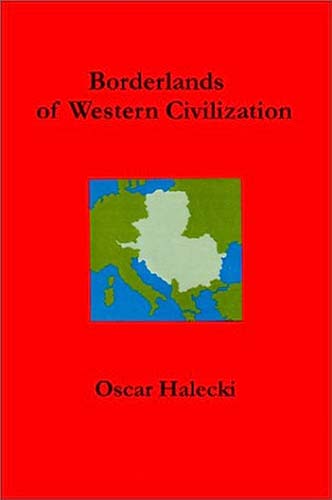
Cover of the book "Borderlands of Western Civilization" by Oscar Halecki. (Public Domain)
What was more important to me at the time, was that he was satisfied, with my dissertation. He wrote to me in a letter in late 1965: “I wish to congratulate you once more, now after careful reading, for the truly excellent contribution which you have made. Particularly valuable are the unpublished papers which you studied in the MSZ archives and the information which you collected through private correspondence”. The following year, 1966, Poland’s Millennium Year I received a Ph. D. degree in Modern History of East Central Europe, from Fordham University. My dream was realized.
I was now Associate Professor (docent) of History and later, in 1972, became full Professor at New Jersey City University, in Jersey City, NJ. When I invited him to speak at my university as a guest lecturer, he accepted without hesitation even though it was quite an effort to make at his advanced age. His presence at my university was a major event and meant a great deal to me. Halecki was kind enough to recommend me for membership at PIASA. When later I became a member of PIASA’s Board of Directors and then selected to be Secretary General in 1971 he expressed great satisfaction. It was his support and encouragement that persuaded me to accept these positions in the first place. Later, in 1991, I accepted the position of Executive Director of PIASA and President in 2008, motivated by the desire to continue the work of my mentor guided by his spirit and values.
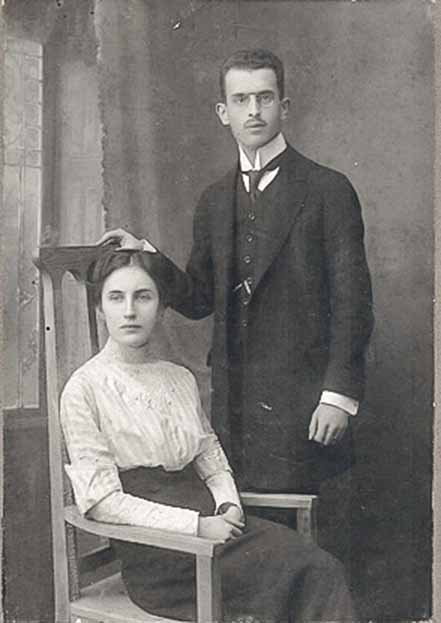
Oscar and Helena (née Szarłowska) Chalecki vel Halecki, photo around 1918, private collection of prof. dr Tadeusz Gromada, USA. (Source: halecki.org)
With the sudden death of his beloved wife, Helena (née Szarlowska) in 1964, Halecki’s personal life was shattered, since she was the center of his existence. At this juncture, Halecki decided to retire and end his public life. In the past he was always very busy making frequent public appearances at various academic and non-academic Polonia gatherings, always inspiring and impressing his audiences with his eloquence. Now he withdrew to a quiet, lonely existence in a modest three-room apartment in suburban White Plains, New York, about an hour away from Manhattan. The only time he broke his self-imposed isolation was when His Holiness Pope Paul VI invited Halecki in 1966 to come to the Vatican and deliver a lecture on Poland’s Millennium in Latin — lecture that had far reaching impact. I recall how he agonized about getting ready for this assignment.
But even in retirement, I did not lose contact with him. In fact, my personal contacts increased. I visited him at his White Plains apartment at least once every few months — sometimes even more often — until his death in September 1973. At other times we were in touch by telephone. I would usually return home with a recent issue of the “Wiadomości Londyńskie" (London News) after discussing current developments in the world and especially recent events at PIASA.
He seemed to enjoy my visits and never hesitated to contact me if he needed something. I, in turn, consulted with him when I needed his help or advice. When in the summer of 1969 I was asked by the Prior of the Pauline Fathers, Rev. Michael Zembrzuski, to be the Master of Ceremonies of a special program welcoming Karol Cardinal Wojtyła, at the new Shrine of Our Lady of Czestochowa in Doylestown, PA, I felt the need to consult Halecki. When I related the news to him, he was more than pleased. During our conversation it became apparent that Halecki was well informed about the Catholic Church in Poland, its hierarchy, which included Cardinal Wojtyła. So, he was able to brief me thoroughly about the young Prince of the Church whom he held in high esteem for both his intellectual and pastoral abilities. Before I left Halecki, he asked me one favor. Would I deliver a personal letter to Cardinal Wojtyła together with the first chapter of his forthcoming book on Queen Jadwiga?
It was the first time that Halecki told me about his project, a monograph on "Jadwiga of Anjou and the Rise of East Central Europe”, which he hoped to complete before the 600th anniversary of the birth of Jadwiga in February 1974. He expressed to me feelings of guilt and regrets that he had neglected Jadwiga in the past, so he was now determined to make up for “his negligence.” It was obvious that he wanted the Cardinal to be informed about his research project and to encourage him to promote vigorously the beatification of Jadwiga, the first step toward Sainthood. Not only did I deliver the letter and the chapter to Cardinal Wojtyla, but I was instrumental in bringing about a face-to-face meeting between the Cardinal and Halecki in New York. Thus, Halecki had the opportunity to meet the future Polish Pope, much to my satisfaction.
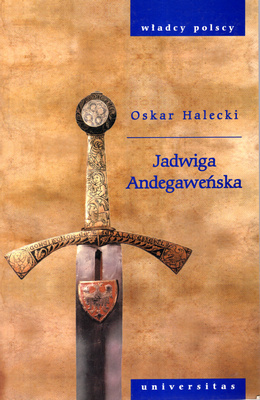
The cover of the book "Jadwiga Andegaweńska" by Oscar Halecki. (Source: Goodreads)
Halecki’s last intellectual passion, Jadwiga of Anjou, no doubt extended his life for a few more years. It was not easy for him to work on this project since his health was deteriorating and he was finding it difficult to cope with daily household chores. He finally finished the manuscript in early 1972 and entrusted his handwritten “magnum opus” to me. I felt honored by Halecki’s trust but, at the same time, I felt that a great burden was placed on me. I was expected to get the manuscript typed, edited and prepared for publication. Halecki was right when he stoically remarked to me that, “It will probably be a posthumous publication”. He died in September 1973 and the book was finally published in 1991 and presented to Pope John Paul II in 1993. The book may have contributed to the eventual canonization of Jadwiga.
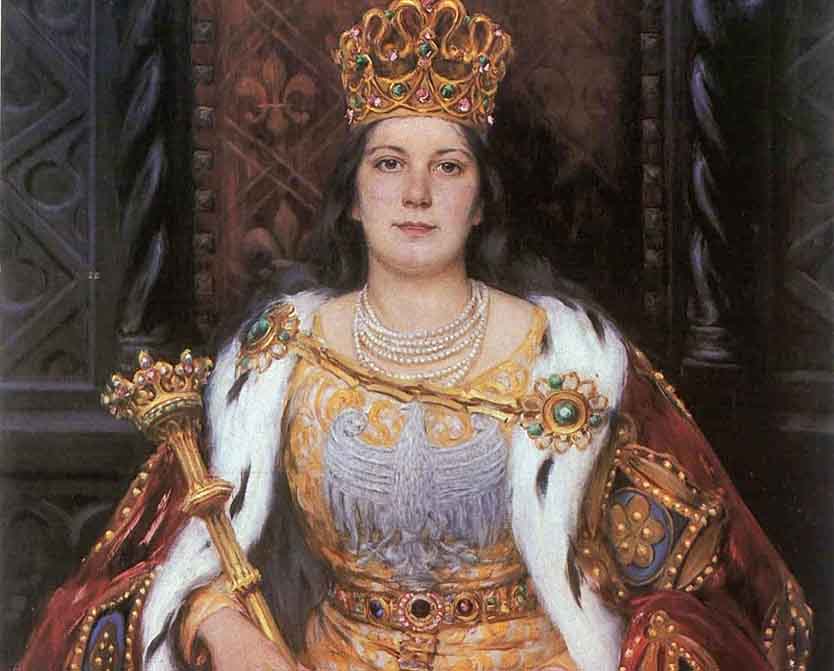
Queen Jadwiga, oil on canvas, by Aleksander Augustynowicz (Source: Wikimedia)
I had become Halecki’s link with the outside world. When it became necessary to represent him at some event, he would ask me to accept this task. For example, when the American Association for the Advancement of Slavic Studies decided to present the prestigious “Award for Distinguished Contributions to Slavic Studies” on March 27, 1970, at Ohio State University in Columbus, Ohio, I was asked to accept the award for him.
In spite of all the honorary degrees he received from American and Canadian Universities and awards like the “John Gilmary Shea Award” from the American Catholic Historical Association for his book “The Millennium of Europe”, he did not feel completely fulfilled. The reason, he told me in confidence, was his disappointment that he did not become a professor at his alma mater, Jagiellonian University, in his beloved Krakow.
In early September 1973, I had telephoned Prof. Halecki, simply to find out how he was doing. But there was no answer. After several calls, I became very uneasy and traveled to White Plains to learn that he had suffered a stroke on the way to Mass... Halecki was a devout Catholic and daily communicant. When I visited him in the hospital a few times and once with my colleague Dr. Eugene Kusielewicz, President of the Kosciuszko Foundation, he was in a semi-conscious state attended by Sisters of Charity nuns. He recognized us but continued to pray in Polish, repeating over and over, “Wieczny odpoczynek racz mi dać Panie …etc.”
Three days later on September 17, 1973, at 6:50 am, Poland’s greatest historian of the 20th century, who “fused religious, scholarly and patriotic ideals in a fruitful life” had died. A few days later, a private funeral was held in his Catholic parish Church, in White Plains, N.Y., attended by a small group of Prof. Halecki’s colleagues and students from Fordham and Columbia Universities.
In accordance with his will, he was buried at the “Gate of Heaven Cemetery” in Hawthorne, N.Y., beside his beloved wife, Helena. Since the Polish American community and the various academic and scholarly circles in the Metropolitan New York, New Jersey, and Connecticut did not have any opportunity to pay tribute to Halecki, I took the initiative as Secretary General of PIASA and as his student to arrange for a proper public Memorial Services.
On October 20, Cardinal John Krol — the first Polish American cardinal — celebrated Mass for the repose of the soul of Oscar Halecki in the famous St. Patrick’s cathedral on 5th Avenue in New York City, which was filled with mourners. In the afternoon of the same day, a Memorial Service was also held at the Kosciuszko Foundation, chaired by me, during which time the following persons delivered their reflections on the life of Oskar Halecki: Prof. Stanislaw Mrozowski, PIASA, Rev. Robert Trisco, American Historical Associaton, and the American Catholic Historical Association, Dr. Stanislaus Blejwas, Institute on East Central Europe, Columbia University, Rev. Victoras Gisziunas, OFM, Committee for a Free Lithuania; Prof. Eward W. Berbusse, S.J. Fordham University, Rt. Rev. Monsignor Bela Varga, Hungarian Committee, Prof. Waclaw Jedrzejewicz, Pilsudski Institute of America, Dr. Joseph Wieczerzak, Polish American Historical Association, Janusz Krzyzanowski, Polish American Congress, Prof. Piotr S. Wandycz, Yale University, Prof. Wasyl Lencyk, Shevchenko Scientific Society, and Dr. Eugene Kusielewicz, Kosciuszko Foundation. It was indeed an impressive and inspiring manifestation by scholars and community leaders of various national backgrounds who recognized Oscar Halecki as a person of exceptional erudition, piety and humanity, and who wanted to pay him public homage.
Halecki’s greatest achievement while in America was to make American and Western European historians aware that they were distorting the general history of Europe by ignoring and disregarding the role of East Central European nations. He first developed systematically in his “Limits and Divisions of European History” the thesis that Eastern Europe, as distinct from Russia, is no less European than Western Europe; that both alike are integral parts of one great European community of people sharing the same spiritual and cultural traditions.
He also rejected a popular view in America and Western Europe that identified the history of Eastern Europe with the history of Russia while considering the non-Russian part of Eastern Europe as an appendix to be included only on the grounds that it will help to give a more complete understanding of Russia. Halecki was able to begin the slow but steady process of revising European history in America, as well as in Western Europe, by his prolific publications in the English language and by his effective teaching at Fordham and Columbia Universities. His influence, as a member of the editorial boards and contributor to the “Slavic Review” and the” Journal of Central European Affairs” and other journals, was felt in the major American academic journals.
Halecki was more than a historian, he was a philosopher of history. Yes, he was a great Polish patriot with strong mystical feelings for Poland, but he was not a narrow nationalist. He glorified the pluralism of the Jagiellonia Commonweath. In his classes, I heard him lecture on the importance of Europeans developing a supra-national consciousness with federal organizations, that would reconcile two great ideas, national self-determination and international cooperation. So, he was also a European.
He believed in unity with pluralism. To him, the essence of European civilization is its inherent pluralism. “Whatever is colossal and uniform is definitely un-European," Halecki insisted. He also thought that Poles should be genuinely concerned for the welfare of their Eastern neighbors: Ukraine, Lithuania, and Belarus, who once were associated with the Rzeczpospolita.
It is certainly true that Halecki was a devout Catholic, and even a saintly individual, but he respected religious diversity and was a firm believer in ecumenism. In his book “From Florence to Brest” it is clear that — although he believed in the reunion of the Latin and Greek Churches — he also believed that the Eastern Churches should retain their identities and preserve their traditions, rites, and liturgies.
I am also struck by Halecki’s view that America was of vital importance to Poland and to Europe in general. He was a keen observer when he stated in his book “Millennium of Europe” that America was moving away from the melting pot concept to cultural pluralism. He perceived an historical process that would eventually create a new Atlantic community which he called EuroAmerica — a community made safe and free for national diversity and the inalienable rights of the human person. Polish Americans and other Euro-American ethnic groups have an important role to play in the creation of this community, according to this eminent Polish historian.
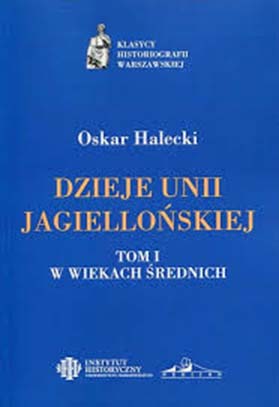
Cover of the book "Dzieje Unii Jagellońskiej" (The History of the Jagellonian Union) by Oscar Halecki. (Source: Amazon)
Halecki’s vision of history was not utopian, but it always contained a note of hope. It was based on principles of Christian Humanism akin to the ideas that were expressed by the late Pope Paul II in his encyclical “Fides et Ratio.” Even at the height of the Cold War in the 1960’s Halecki never lost hope that “peace and freedom” could come to Poland and the nations of East Central Europe, ”not as a result of the inhuman price of another war, but as a result of moral power and peaceful methods”.
Halecki’s living, teaching, lecturing, researching, writing and publishing books and articles in America for over thirty years, have greatly enriched and broadened American historical scholarship. His many students at Fordham and Columbia as well as those historians and students who read his works or heard his lectures have been greatly influenced by him. They admire him for his erudition and very high academic standards. They will never forget him, nor the great values and traditions he championed, which are based on freedom and respect for the human individual personality. Poles and persons of Polish origin cannot afford to forget the memory of one of Poland’s greatest sons. May his memory endure forever!
A Polish version of this article appeared in «Oskar Halecki i jego wizja Europy», edited by Małgorzata Dąbrowska, (Warszawa-Łódz: Instytut Pamięci Narodowej, 2012) pp.237-244.



